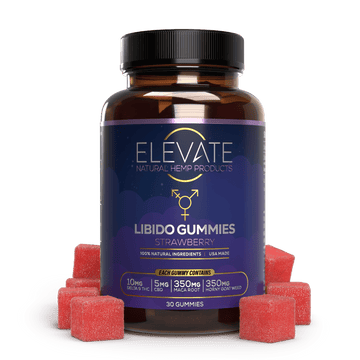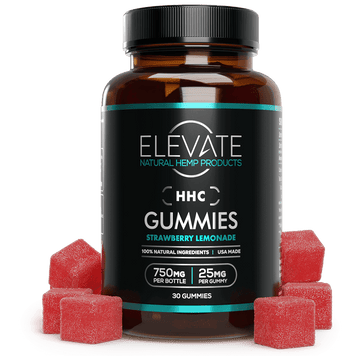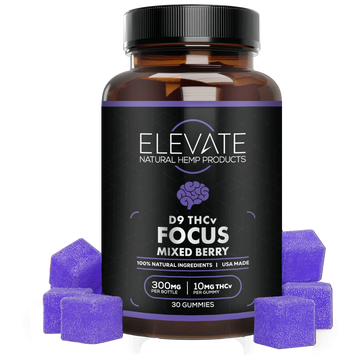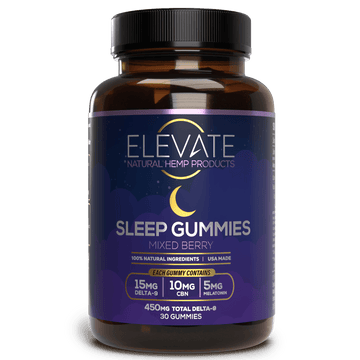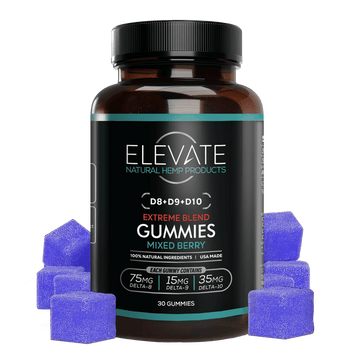Is CBD Oil Safe? A Practical Guide to Benefits & Risks

Is CBD Oil Safe:
CBD is generally safe for most adults. Possible side effects include drowsiness, dry mouth, and changes in appetite. CBD can interact with certain medications, especially blood thinners. Consult your doctor if you take prescription medications. Start with low doses.
Let’s get straight to the point. You want to know if CBD oil safe, and you deserve a clear answer without having to sift through confusing jargon or marketing fluff. The short answer is yes, high-quality CBD is generally considered safe for most adults. However, the long answer is a bit more detailed, as safety depends heavily on the product’s quality, your individual health, and how you use it. In this guide, we’ll break down all the essential factors, including proper dosing, what to look for in a lab report, and specific situations where you should be extra cautious or consult a doctor first.
Is CBD Oil Safe? The Short Answer
Yes, CBD oil is generally considered safe for long-term use—as long as it’s made from high-quality, organic hemp.
Check for third-party lab reports to avoid contaminants and ensure correct dosing.
Always talk to your doctor, especially if you're pregnant, nursing, taking medications, or have a medical condition.
Be aware of possible side effects, including mild drowsiness, digestive issues, and changes in appetite.
Store your CBD properly—cool, dry, and out of reach of kids and pets.
What Exactly Is CBD Oil?
Cannabidiol (CBD) is a non-psychoactive compound found in hemp that’s been used for centuries to support relaxation, ease stress, and promote general wellness .
In oil form, CBD is typically combined with a carrier like MCT oil for better absorption, and may include extra ingredients like melatonin, adaptogenic mushrooms, or CBG blends to enhance specific effects.
The Legal Landscape of CBD
Figuring out the rules around CBD can feel a bit complicated, but the basics are actually quite simple. The most important thing to know is that the legality of CBD depends on its source: hemp or marijuana. Thanks to the 2018 Farm Bill, products derived from hemp became federally legal across the United States. This law specifically defines hemp as a cannabis plant that contains 0.3% or less THC, which is the compound that causes a "high." This key piece of legislation is what made it possible for you to find CBD products, from oils to edibles, in stores and online today.
Federal vs. State Laws
This is where things get a little more detailed. While hemp-derived CBD is legal on a federal level, individual states can still set their own rules. The Centers for Disease Control and Prevention (CDC) clarifies this, stating, "a U.S. law made CBD legal at the federal level if it comes from hemp... However, some states still have their own laws, so CBD might not be legal everywhere." This means that even though you can buy hemp-derived CBD in most places, a handful of states have their own specific restrictions. It’s always a good idea to check your local regulations to be sure about what’s allowed in your area before you make a purchase.
What is CBD Used For? A Look at the Research
People are using CBD for all sorts of reasons, from easing everyday stress to getting a better night's sleep. You've likely heard personal stories from friends or seen testimonials online. While this anecdotal feedback is compelling, the scientific community is still in the process of conducting large-scale studies to confirm all of CBD's potential benefits. It's an exciting area of research with new findings coming out regularly, but it's important to distinguish between what's been scientifically proven and what's still being explored. As of now, only one CBD-based medication has been approved by the U.S. Food and Drug Administration (FDA), which shows there's still much to learn.
Proven Benefits and Ongoing Studies
When it comes to scientifically proven benefits, the list is currently very short and specific. The Mayo Clinic points out that "the only CBD product approved by the FDA is a prescription oil called Epidiolex," which is prescribed for two rare and severe forms of epilepsy. This is a significant achievement for CBD, as it represents the highest standard of clinical validation. Beyond this, researchers are actively investigating how CBD may help with other issues like chronic pain, anxiety, and inflammation. While many smaller studies show promise, these uses are still considered investigational until more extensive human trials are completed.
Anxiety, Sleep, and Pain Management
Many people use CBD as part of their daily wellness routine to promote a sense of calm and manage stress. Some early research backs this up. For instance, the AAMC highlights a study suggesting CBD might help with anxiety, noting a significant reduction in symptoms for some participants. This potential to soothe the mind is a big reason why products like CBD gummies have become a popular choice for daily support. Similarly, those looking for more restful nights often turn to CBD. Many formulas are now designed specifically for sleep, combining CBD with other calming ingredients to help you relax and prepare for bed.
Seizure Disorders
The most established and scientifically supported use for CBD is in treating specific, severe seizure disorders. The FDA's approval of Epidiolex was a groundbreaking moment, offering a new therapeutic option for patients with Lennox-Gastaut syndrome and Dravet syndrome. These are two forms of epilepsy that are particularly difficult to manage. The clinical evidence for its effectiveness is strong, with the AAMC reporting that Epidiolex "has been shown to reduce seizures by 50% to over 70%." This powerful data is what led to its official approval and stands as the clearest example of CBD's potential in a medical context.
Understanding CBD Regulation (or Lack Thereof)
The CBD market has grown incredibly fast, but this rapid expansion has created an environment with very little oversight. Since the FDA does not regulate most CBD products as it does prescription drugs, the quality and potency can differ wildly between brands. This lack of regulation means the responsibility falls on you, the consumer, to be selective and choose products from companies that prioritize transparency and high-quality standards. It requires looking past clever marketing to understand what’s actually in the product you're buying, ensuring it's both safe and effective for your needs.
The FDA's Stance on CBD Products
It's important to know where the FDA officially stands on CBD. The CDC states, "The FDA has only approved one CBD medicine, called Epidiolex, to treat rare seizure problems. Other CBD products you see for sale are not approved by the FDA." This means that any non-prescription CBD product that makes specific claims to treat or cure a health condition is violating FDA regulations. Reputable brands understand these rules and are careful with their language, focusing on how their products can support general wellness. This is a key distinction, as it reminds us that the CBD products you buy over-the-counter are not intended to be a substitute for medicine.
The Risk of Mislabeled Products and Contaminants
In an unregulated market, what you see on the label isn't always what you get. This is one of the biggest issues facing consumers today. Research has uncovered major inconsistencies, with one study mentioned by the AAMC finding that "22 out of 25 products had incorrect CBD levels." Some products had far less CBD than advertised, while others had more. An even greater concern is the risk of contaminants like pesticides, heavy metals, or solvents from the extraction process. This is precisely why third-party lab testing is essential. Always choose brands that provide up-to-date lab reports, often called Certificates of Analysis (COAs), for all of their products.
Finding Safe CBD: Why Organic Hemp & Lab Tests Matter
Hemp is a bioaccumulator, meaning it absorbs everything in the soil—including pesticides, heavy metals, and herbicides. For safety, choose CBD derived from organic hemp and backed by a valid Certificate of Analysis (COA).
Research confirms the importance of COAs to verify CBD potency and screen out contaminants.
Always inspect lab results for THC levels, solvents, microbial contamination, and heavy metal presence.
Potential CBD Side Effects You Should Know
What to Expect in the Short Term
At common doses (25–50 mg), side effects are typically mild:
Fatigue
Dizziness
Mild digestive upset
Appetite changes
These are dose-dependent and usually temporary.
What to Expect in the Long Term
Most long-term users report no serious adverse effects . However, the FDA has raised cautions regarding potential risks to liver health, fertility, and interactions with medications (particularly metabolized by CYP450) .
Who Should Be Cautious with CBD?
Pregnancy and Breastfeeding
If you're pregnant or breastfeeding, it's best to be extra cautious with CBD. The Centers for Disease Control and Prevention (CDC) strongly advises against using CBD during pregnancy because its effects on a developing baby are still unknown. Some animal studies have shown that high doses of CBD can be harmful to the fetus, which raises valid concerns for human pregnancies. It’s also unclear if CBD can pass into breast milk, so the recommendation is for nursing mothers to avoid it as well to be on the safe side. Your health and your baby's health are the top priority, so it's wise to hold off on CBD during this time.
Children and Teens
The safety of CBD for children and teenagers is another area that requires careful consideration. According to the CDC, we don't fully understand how CBD might affect a brain that's still developing. Because of these unknowns, it's crucial to store all CBD and THC products securely in childproof containers, well out of reach. This is a non-negotiable for any household with cannabis products. If you're considering CBD for a minor for any reason, the first and most important step is to have a thorough conversation with their pediatrician or another qualified healthcare professional to discuss potential risks and benefits.
Does CBD Interact with Other Medications?
CBD can affect drug metabolism, especially via the CYP3A4 and CYP2C enzyme systems, which may amplify or weaken other medications . Always discuss CBD use with your healthcare provider to rule out harmful interactions.
The "Grapefruit Effect" and Blood Thinners
You’ve probably seen the warning label on prescription bottles: "Do not take with grapefruit." CBD can have a very similar impact on your body, a phenomenon often called the "Grapefruit Effect." It works by temporarily tying up a group of liver enzymes, known as CYP450, that are essential for processing many common medications. When these enzymes are busy with CBD, they can’t break down other drugs as effectively. This can lead to a buildup of other substances in your system, which might strengthen their effects—and side effects—in ways you don't expect.
This interaction is especially important to understand if you take blood thinners. By slowing down how your body metabolizes these critical medications, CBD could alter their effectiveness and introduce serious health risks. The FDA has also raised concerns about these potential drug interactions, highlighting the need for caution. Before you add CBD to your routine, having a conversation with your doctor is a non-negotiable step. It’s the only way to ensure you can safely explore your wellness options without compromising your health.
Should You Use CBD Every Day?
Daily use may help build stress resilience and promote consistent wellness. Consulting a physician is essential—especially if you’re:
Taking prescription drugs
Pregnant or breastfeeding
Dealing with chronic health conditions
How to Choose and Use CBD Safely
Start Low and Go Slow with Dosing
When you first try CBD, the best approach is to "start low and go slow." There isn't a universal dose that works for everyone, as factors like your body weight, metabolism, and the reason you're using CBD all play a role. A good starting point is a small amount, like 5 to 10 milligrams. Stick with that dose for a few days to see how your body responds before gradually increasing it. This method allows you to find your personal "sweet spot" without overdoing it. Products with pre-measured doses, like CBD gummies, make it simple to track your intake and adjust it carefully until you achieve the effects you're looking for.
Choosing the Right Product Type
CBD comes in many forms, including oils, capsules, vapes, and edibles. The right one for you depends on your lifestyle and preferences. For instance, vaping offers fast effects, while edibles take longer to kick in but provide longer-lasting relief. Before you begin, it's always a smart idea to talk to your doctor, especially if you have any underlying health conditions or take other medications. They can help you decide on a product type and starting dose that aligns with your wellness goals, ensuring you have a safe and positive experience from the start.
What to Do If You Have a Bad Reaction
While serious side effects are rare with high-quality CBD, it's important to know what to do if you have a bad reaction. If you experience a severe or immediate danger, the CDC recommends calling your local poison control center at 1-800-222-1222 or 911 right away. For milder reactions, such as excessive drowsiness or an upset stomach, it's best to stop using the product and speak with your doctor. To minimize risks, always purchase from reputable brands that provide third-party lab reports for their products. This helps ensure you're getting a safe product that is free from contaminants and accurately labeled.
So, Is CBD Oil Right for You?
Choose high-quality, organic CBD oil.
Verify with a COA.
Stick to recommended doses.
Monitor for mild side effects.
Talk to your doctor about long-term use.
Sources
Cannabidiol safety, side effects, and pharmacology research
FDA updates on CBD risks and regulatory stance
Frequently Asked Questions
Is it really okay to take CBD every day? For many people, consistency is key. Taking CBD daily can help maintain a stable level in your system, which may support general wellness and stress management more effectively than occasional use. Think of it like any other supplement in your routine. However, it's always best to have a conversation with your doctor before making it a daily habit, especially if you have any health conditions or are taking other medications.
How can I be sure the CBD I'm buying is actually safe? This is a great question, especially since the market isn't well-regulated. The most important thing to look for is a recent Certificate of Analysis, or COA, from a third-party lab. Reputable brands make these easy to find on their website. This report is your proof that the product contains the amount of CBD it claims and is free from harmful contaminants like pesticides, heavy metals, or solvents. If a brand doesn't provide a COA, it's best to look elsewhere.
Will CBD oil make me feel high like marijuana does? No, it won't. CBD is a non-psychoactive compound, meaning it doesn't produce the "high" associated with THC. By law, hemp-derived CBD products must contain 0.3% or less THC, which is a trace amount that isn't enough to cause intoxicating effects. Instead, users often report feeling a sense of calm or relaxation without any mental impairment.
What's the real difference between CBD oil and CBD gummies? The main difference comes down to how your body absorbs them and how long the effects last. CBD oil taken under the tongue is absorbed directly into your bloodstream, so it tends to work more quickly. Gummies, on the other hand, have to pass through your digestive system first. This means they take longer to kick in, but the effects often last for a longer period, providing a slow and steady release.
I took some CBD but don't feel anything. Is it not working? It's common not to feel dramatic effects right away, especially with your first dose. CBD's influence can be subtle, and finding the right amount for your body takes a little patience. It's also possible your starting dose is too low. Following the "start low and go slow" method, you can gradually increase your intake over several days until you find the sweet spot that works for you.
Key Takeaways
- Verify Product Safety with Lab Reports: The CBD market isn't regulated, so it's up to you to confirm a product's purity and potency. A recent Certificate of Analysis (COA) from a third-party lab is the only way to know exactly what you're getting.
- Talk to Your Doctor Before Starting: CBD can interact with common medications, similar to grapefruit juice. A quick conversation with your healthcare provider is the best way to ensure it’s a safe choice for your specific health situation, especially if you take prescriptions.
- Find Your Dose by Starting Small: There's no one-size-fits-all amount for CBD. Begin with a low dose (5-10 mg) and increase it slowly over a few days until you find the right balance for your wellness goals.
Related Articles
Join Our Newsletter
Sign up to be the first to know about our can't-miss product drops, special VIP offers & exclusive discounts.

